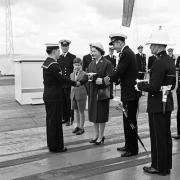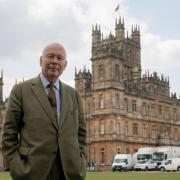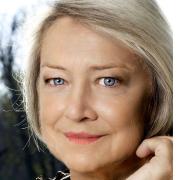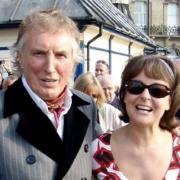Natalie Clein may be a world-class cellist but she is forever drawn back to her native Dorset. Now, as artistic director of the Purbeck Chamber Music Festival she is bringing new talent to the county

Performing Elgar surrounded by tanks will be a first for internationally acclaimed cellist Natalie Clein - possibly for Elgar too. The Tank Museum at Bovington is the stage; the event a First World War Memorial Concert at the Purbeck Chamber Music Festival, which Natalie curates.
“Elgar’s Piano Quintet in A minor for Piano and String Quartet, Op. 84 was written in the summer of 1918. In a way it is a very dark piece but it has incredible beauty and joy,” she says.
Natalie’s sister, actress Louisa Clein, will be reading a mix of original war poems and modern reflections on those poems from Carol Ann Duffy’s anthology 1914: Poetry Remembers.
“To hear those words spoken in the Tank Museum will be such a stark contrast between the huge brutal machines built for one purpose and the fragile emotions hidden in the human voice and in the music,” says Natalie.
The interest in juxtaposing music with words is not new. At her debut at Purbeck Arts Week in 2010 Natalie performed solo cello music with poems by Ted Hughes, read by actor Sam West.
“The audiences were really receptive to the spoken word as well as to the music. Ever since then, each year I have programmed in a meaningful piece of literature alongside the music and they grow together. It is very much in the spirit of this festival.”
Natalie’s love of literature was nurtured by her teachers at Talbot Heath School, who, she says, were very supportive of her burgeoning music career.
The Purbeck Chamber Music Festival has grown out of Purbeck Arts Weeks and has now become an event in its own right. It also has a loyal following as Natalie and her friends - an international crowd of world-class soloists and chamber musicians – bring internationally renowned performers to this beautiful and remote part of Dorset.
This year her friends are violinist Fredrik Paulsson, Barbara Doll, violin/viola, pianist Ashley Wass, viola players, Gareth Lubbe and Ellen Nisbeth, and cellist Nina Dolginsteva. As well as performing at the Tank Museum, other concerts include Bloch and Mozart at St James’ Church, Kingston, and unaccompanied Bach at Durlston Castle, close to where Natalie’s parents live.
“Durlston must be one of the most beautiful spots on earth,” she declares. “The idea of playing there and looking out to sea is truly inspiring.”
Though her work means that Natalie and her husband, who is also in the music business, live in London, the chance to return to Purbeck is always welcome.
“I think it’s paradise around Purbeck. The sea and the landscape give me such energy –it’s one of the most beautiful parts of the country, and I’ve done a lot of travelling so I know what I’m saying.”
Natalie and her friends will also be performing Arnold Schoenberg’s Verklärte Nacht or Transfigured Night, inspired by Richard Dehmel’s poem of the same name. Written in 1899, this groundbreaking piece features a string sextet in one movement. “My sister Louisa will read the poem before we play. The piece links in some ways to the programme at the Tank Museum. It’s a pre-war piece but is already of the modern world. The second half features Brahms’ A Major Piano Quartet; a profoundly beautiful and epic work.”
Following her performances at Purbeck Chamber Music Week, Natalie will be performing in the world premiere of Flood of Beauty by Sir John Tavener at the Barbican in London.
It is the last major concert work written by Tavener before his death last November and expresses the rapture and bliss of the Divine Being through Hinduism.
Natalie visited Tavener at his Child Okeford home several times. “John wrote so beautifully for the cello – he just had a way of speaking with it, almost spiritually,” she remembers.
Described by The Times as a “graceful, lyrical player with a sound like a fine-spun silver thread” Natalie took up the cello aged six and rapidly proved that she was prodigiously talented.
In 1994, at just 16 years old, she won BBC Young Musician of the Year with her electrifying performance of Elgar’s Cello Concerto. In the same year, she became the first British winner of the Eurovision Competition for Young Musicians. Within three years, she had left Dorset to study in Vienna with Heinrich Schiff, the Austrian conductor and cellist.
It was in Vienna, ten years ago, that Natalie found a love she says “grows stronger every day,” but which cannot last forever. Simpson, her constant companion and occupier of the seat beside her on every plane, is older than she is: 200 years older and is, of course, Natalie’s cello. A 1777 Guadagnini cello, made in Turin by a man described as “the Leonardo da Vinci of cello-makers”.
This fabulously valuable masterpiece is not all Natalie’s but belongs instead to a syndicate of 20 investors. One day, they will want a return on their investment and Simpson may be sold.
“A lot of instruments of this calibre are owned this way because they are an incredibly good investment. They go up in value more than houses or paintings,” reveals Natalie. “I am only a small investor in Simpson. I can’t afford to buy it outright. No musician can now.”
One of the joys of people investing in these historic instruments is that they don’t end up sitting silently in a museum behind glass.
“That’s the beauty of this situation we can hear their voices and actually it’s good for the instruments to keep them played, it keeps the woodworm out.”
Another claimant for her love arrived last summer when the cellist gave birth to her daughter. “I haven’t slept in 10 months – this is not a joke,” she laughs.
“Yes it’s a challenge juggling work life, home life and practice but it’s one I happily embrace, being a mum is the best thing I have ever done.”
As you would expect, her daughter’s musical career has already started.
“I’ve a CD coming out in September which is very special to me. I feel there are two people playing the cello, as I was seven months pregnant when I recorded it. Also there is a nice circular theme about it as the piece is the Saint-Saëns Cello Concerto No. 1 in A minor. It was the first concerto I learnt and the first I ever played with an orchestra in Dorset, when I was 11, with the Dorset Chamber Orchestra.”
Natalie too heard music before she was born. Her parents met when her mother, a professional violinist, gave her father, a keen amateur player, violin lessons.
Natalie, who was born in Poole, has childhood memories of her parents leading string quartets at their home. Has she read Malcolm Gladwell’s book Outliers, which says that eminent people from the Beatles to Bill Gates have to clock up 10,000 hours of practice in order to achieve greatness?
“I was discussing that very issue with some friends recently. I worked out that I’d done 10,000 hours by the time I was 19.”
Natalie’s next big project is to play all six Bach Cello Suites, an unaccompanied work that is the ‘bible’ for cellists. Her plans for the Purbeck Chamber Music Festival are equally ambitious but currently constrained as the festival is in need of a good piano. “Each year we have to rent a Steinway for the one concert. This year the Steinway will be in the Tank museum. But it would be incredible if we could have one of our own - imagine the pianists and the repertoire we could have then.”



























